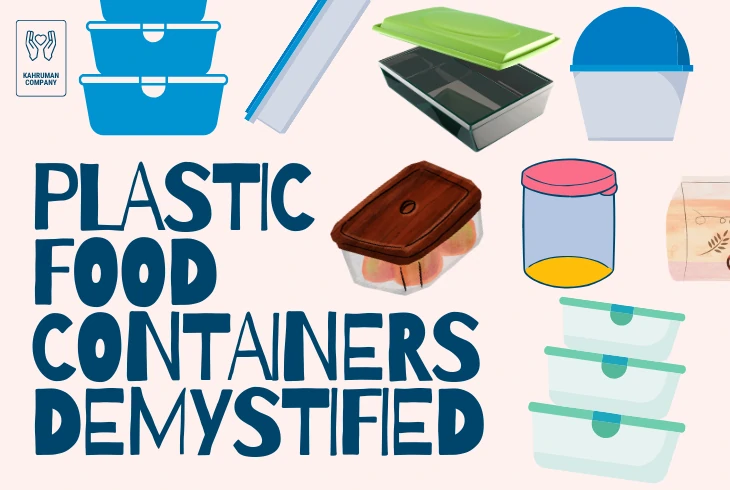In recent years, Turkey has emerged as a significant player in the global market, offering a diverse range of high-quality products to imports and competitive prices. The country's strategic location at the crossroads of Europe, Asia, and the Middle East, coupled with its robust manufacturing sector, make it an attractive destination for importers worldwide. This article explores the benefits and considerations of importing from Turkey, highlighting the country's key strengths and the steps involved in initiating successful trade partnerships to increase your dollars as a wholesaler.
Import from Turkey
Among the most common ways to import from Turkey is using the internet to start and learn. Turkish companies in markets specializing in different vending types of the best products and materials to import from Turkey can be found on commercial websites such as Kahruman.com and Alibaba Getting your goods shipped from Turkey is also more affordable than other methods, and most of the main goods can imports and exports at lower prices, which is excellent news for the exporters.
Is Turkey a free trade exported country?
Yes, Turkey is generally considered to be a free trade country. It has a liberalized simple trade regime and is a member of several regional and international trade agreements. Turkey's economy is highly dependent on international trade and good for imported countries , and it has actively pursued trade liberalization policies over the years.
Turkey is a member of the World Trade Organization (WTO) since 1995 and benefits from the WTO's principles of free and fair trade. Turkiye has entered into a customs union with the European Union (EU) since 1996, which has further liberalized trade between Turkey and the EU member states.
Furthermore, Turkey has signed various free trade agreements (FTAs) with other countries and regional blocs . These agreements aim to reduce or eliminate imports trade barriers such as tariffs and quotas, thereby promoting trade and economic cooperation. Some of Turkey's significant free trade agreements include those with countries like South Korea, Mexico, Malaysia, Egypt, and several countries in the Middle East and major Central Asia.
However, it's worth noting that like any country, Turkey may still impose certain restrictions or regulations on specific products or industries for various reasons, such as protecting domestic industries or addressing national security concerns. These measures are typically within the framework of international imports and exports trade rules and agreements.
What are the most profitable goods to import from Turkey?
The top products to import from Turkey are gems, oil, household and precious metals. Vehicles are another popular item, and Turkish automotive companies are among the most giant truck, van, and bus manufacturers globally. Other popular products to import from Turkey include electronic equipment, machinery, fuels , cars, trucks, iron or steel products, fruits, nuts, and paper.
Some of the most popular goods to import from Turkey include artificial staple fibers, live animals, and lead. You can find everything you need to make your business successful in Turkey, whether you're looking to sell your product or buy a whole new one.
Diverse Product Range:
Turkey boasts a diverse array of products, catering to various industries and consumer needs. From textiles, apparel, and furniture to automotive parts, electronics, and agricultural goods, Turkish manufacturers offer a wide range of high-quality products across multiple sectors. This diversity provides importers with ample opportunities to source products that align with their business requirements.
Turkey's jewelry and production of mineral industry have gained recognition on the global stage, making it an attractive option for importers. When importing jewelry or mineral-related products from Turkey, it is important to understand the applicable duty rates, industrial agreements, and guidelines set by the Turkish government.
One crucial aspect to consider is the applicable tariff rates. Turkey has established various tariff codes for different products, including jewelry and minerals. Importers must consult Turkey's tariff schedule or seek guidance from customs authorities to determine the specific tariff rates that apply to their imported goods. This information helps importers accurately calculate the costs associated with the import process.
Moreover, understanding industrial agreements is vital when importing jewelry or minerals from Turkey. For instance, Turkey and the United States have a Bilateral Industrial Agreement in place, allowing for duty-free trade of certain goods between the two countries. Importers from the United States can benefit from this agreement by sourcing jewelry and minerals from Turkey without incurring import duties. However, it is essential to review the specific terms and conditions outlined in the agreement to ensure compliance and eligibility for duty-free treatment.
Another important consideration is the Decree on Import Regime issued by the Turkish government. This decree outlines the regulations, restrictions, and procedures related to importing goods, including jewelry and minerals. Importers must review and comply with the provisions set forth in the decree to ensure a smooth and lawful import process.
Textile industry in Turkey
The textile industry in Turkey is one of the leading industries. The country's economy is primarily based on the textile industry. Products such as coats, trousers, and shirts are popular among the general public. Other products include bags, underwear, and children's clothing. You can import any product from Turkey as long as it meets all requirements. If you're interested in importing goods from Turkey, you can take advantage of the tax-free policy to minimize the total cost of shipping.
Exporting Furniture
In addition to pistachios, Turkey is also a leader in exporting furniture and textiles. During the COVID-19 pandemic in 2020, the country's furniture industry will surpass three billion dollars in exports. The variety of products produced by Turkish manufacturers is enormous, and they export to many countries, including the USA. Despite the economic impact of the pandemic on the land, Turkey is an excellent source of furniture.
In addition to furniture, Turkey also produces high-quality carpets, blankets, and rugs. These personal products are durable and have unique finishes that make them desirable. If you want a great cup of coffee, Turkish coffee is the best option for wholesale distributors. It doesn't change the flavor when it's warmed, and it has a delicious aroma. For dinner, try Turkish cuisine. Its traditional dishes include lamb, beef, and vegetables.
Important Market for Exporters
Turkey is also an important market for exporters. It is one of Europe's largest economies, has excellent direct trade routes, and a government keen to promote trade. In 2016, the UK imported PS9 billion worth of goods from Turkey. Increased focus on developing trade opportunities between Turkey and the UK should boost the number of products and services imported by UK businesses.
How to import food from Turkey to USA?
Importing food from Turkey to the USA can be easy with some regulations and requirements involved. Here are some steps to follow when importing food from Turkey to the USA:
Research FDA Regulations: The first step is to research the regulations and requirements set by the US Food and Drug Administration (FDA) for importing food. You should review the FDA's Food Import Program and the Import Alert database to understand the requirements and restrictions for specific products like wheat.
Identify a Supplier: You should identify a reputable supplier of food products in Turkey from manufacturers that meets the requirements of the FDA. You should obtain samples of the products and conduct due diligence to ensure that the supplier meets your standards.
Obtain Necessary Documents: You will need to obtain several documents from the supplier, including an invoice, packing list, and certificate of origin. You may also need to get a phytosanitary certificate or other documentation depending on the imported product type.
Hire a Customs Broker: It's recommended to hire a licensed customs broker to handle the import process. They can assist with obtaining the necessary permits and documentation, filing the required paperwork with the FDA, and navigating the customs clearance process.
Arrange Transportation: You must arrange transportation for the food products from Turkey to the USA. This may involve air or sea freight depending on the type of product and the quantity being imported.
FDA Inspection: The FDA may inspect the imported wholesale food products at the port of entry to ensure compliance with regulations. If the products do not meet the requirements, they may be refused entry or subject to further testing or treatment.
Documents required to import from Turkey:
The documents required to import from Turkey will depend on the type of product being imported and the importing country's regulations. However, here are some standard documents that may be required when importing from Turkey:
Commercial Invoice: This document includes information about the product being imported from Turkiye, such as the description, quantity, and value. It also contains details about the buyer and seller and the terms of the sale.
Bill of Lading: This document serves as proof of shipment and provides details about the carrier, the shipping route, and the destination of the products to import from Turkey.
Packing List: This document provides a detailed list of the contents of the shipment, including the number and type of products, the weight, and the dimensions.
Certificate of Origin: This document verifies the product's country of origin and may be required to comply with trade agreements or customs purposes.
Phytosanitary Certificate: This document is required for some agricultural and food products and verifies that the products meet the health and safety standards of the importing from Turkey country.
Import License: Some products may require an import license or permit from the importing country, depending on the type of product to importing from Turkiye and the regulations in place.
Insurance Certificate: This document provides proof of insurance coverage for the shipment.
What is the import tax from Turkey?
The import tax from Turkey can vary depending on the type of imported product, its value, and the country of destination. Generally, the rate of import tax is based on the customs value of the product, which is calculated as the cost of the product plus any transportation and insurance charges.
In addition to the import tax, other fees may be involved in the import process, such as customs clearance fees, value-added tax (VAT), and excise duties.
To determine the exact import tax from Turkey and other fees for a specific product, it's essential to consult the customs regulations and requirements of the destination country. You can work with a customs broker or freight forwarder who can help navigate the import process and provide guidance on the costs involved.
It's important to factor in all of the costs involved in importing from Turkey when determining the overall cost of the product, including the import tax, shipping costs, customs clearance fees, and any other fees or charges. This will help ensure that you have a clear understanding of the total cost of importing and can make informed decisions about whether or not importing from Turkey is a viable option for your wholesale business.
Risk-Based Trade Control System (TAREKS) in Turkiye
The Risk-Based Trade Control System (TAREKS) is an electronic platform introduced by the Turkish government to streamline and enhance import control procedures. TAREKS aims to improve the efficiency of customs processes and reduce the risk associated with imports by implementing a risk-based approach.
Under TAREKS, importers are required to provide detailed information about their imports through an electronic declaration system. This includes standard and additional information about the imported items from Turkey, their value, country of origin, and other relevant details. The system utilizes this data to assess the risk level associated with each import and determine the level of scrutiny required.
One area where TAREKS has been particularly focused is the importation of petroleum and petroleum-based products. Given the strategic importance of energy security, Turkey has implemented measures to closely monitor and control petroleum imports. Through TAREKS, the Ministry of Trade can effectively track and evaluate petroleum import transactions, ensuring compliance with regulations and preventing any illicit activities.
Furthermore, TAREKS has facilitated the Turkish government's efforts to increase customs duties on certain imported commodities. By analyzing the risk profiles of various items, the authorities can identify goods that may require higher duties or additional scrutiny. This approach helps protect domestic industries and create a level playing field for Turkish manufacturers and producers.
The implementation of TAREKS has had an impact on importers, both within Turkey and from abroad. Importers are required to comply with the electronic declaration system and provide accurate and comprehensive information about their imports. This ensures transparency and helps authorities identify potential risks associated with imported goods.
TAREKS has fostered international cooperation in trade control. Turkey has collaborated with other countries, including Germany, to exchange information and enhance risk assessment procedures. By sharing data and insights, countries can strengthen their control mechanisms and prevent the entry of illicit or hazardous goods that imports from Turkey.
In summary, Turkey's Risk-Based Trade Control System (TAREKS) is a comprehensive electronic platform that enables efficient import control procedures. It enhances risk assessment, facilitates the monitoring of imports, and supports the government's objectives of protecting domestic industries, ensuring compliance, and fostering secure trade.
As an importer, it is crucial to work closely with Turkish suppliers and seek guidance from customs experts or trade professionals to ensure compliance with all applicable regulations and requirements. Being well-informed about Turkey's specific import guidelines, tariff rates, industrial agreements, and export duties is key to a successful and efficient import process for jewelry, mineral and other categories products.
By navigating these considerations effectively, importers and any company can unlock the opportunities presented by Turkey's thriving jewelry, petroleum (energy item), wheat, household, vehicles and mineral industry while adhering to legal requirements and maximizing their importation operations.










